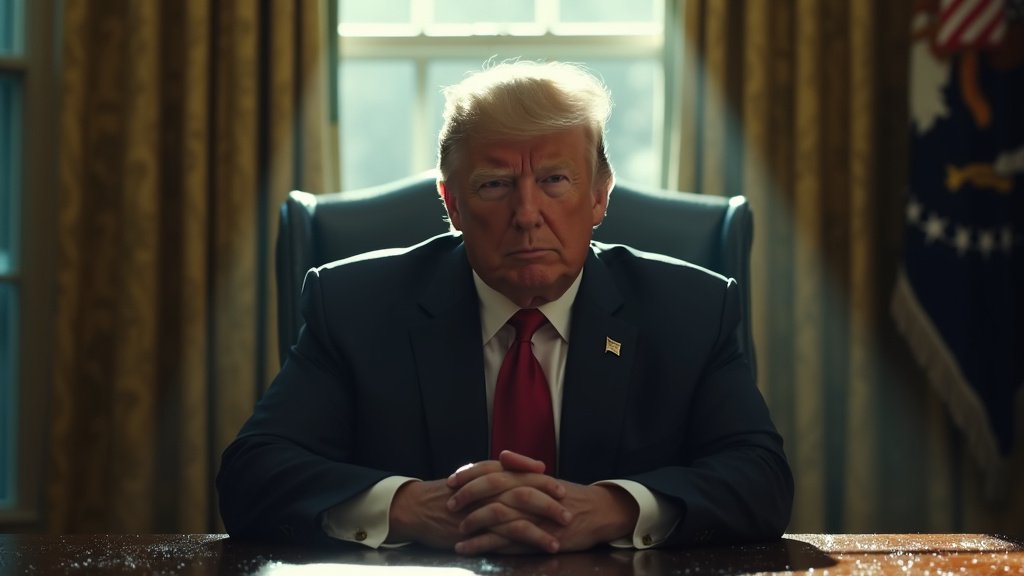CHICAGO, IL – Tensions flared in Chicago as President Donald Trump escalated his rhetoric, threatening a federal crackdown involving National Guard troops and Immigration and Customs Enforcement (ICE) agents. In a series of provocative social media posts, Trump declared Chicago was “about to find out why it’s called the Department of WAR,” accompanied by an AI-generated parody image evoking the Vietnam War film “Apocalypse Now.” The move has been met with strong condemnation from Illinois state and city leaders, sparking widespread protests and deepening political divides across the American landscape.
Escalating Rhetoric and Federal Deployments
President Trump’s fiery pronouncements followed a pattern of federal intervention in Democratic-led cities, including deployments in Los Angeles and Washington, D.C. The administration framed these actions as necessary to combat rising crime and illegal immigration, citing statistics from violent weekends in Chicago as justification. Trump stated his intent to “clean up our cities” and ensure residents could “live in safety, dignity, and peace,” echoing sentiments from the launch of “Operation Legend,” a federal initiative aimed at combating violent crime by surging hundreds of federal law enforcement officers to Chicago.
However, critics argue the administration’s approach is more about political retribution than public safety. Data from some sources indicate that Chicago’s crime rates, while serious, have seen declines in recent years, with some red states reporting higher homicide rates. This selective focus on Democratic strongholds has fueled accusations that the federal actions are a “spectacle of retribution” designed to punish political opposition.
Fierce Opposition from State and City Leaders
Illinois Governor JB Pritzker vehemently denounced Trump’s threats, labeling him a “wannabe dictator” and asserting that the state “won’t be intimidated.” Pritzker characterized the President’s actions as an “invasion” and vowed legal challenges, stating that Illinois “follows the law” unlike the federal administration. He also voiced concerns that ICE raids might coincide with Mexican Independence Day celebrations, a sentiment echoed by community leaders.
Chicago Mayor Brandon Johnson similarly condemned Trump’s rhetoric as “beneath the honor of our nation,” accusing the President of attempting to “occupy our city and break our Constitution.” Johnson took steps to resist federal overreach by signing an executive order directing the Chicago Police Department not to cooperate with federal agents or National Guard units engaged in civil immigration enforcement. The city also moved to limit the influence of federal authorities, emphasizing the need to defend democracy from authoritarianism.
Community Anxiety and Widespread Protests
The impending federal presence has generated significant unease, particularly within Chicago’s Latino communities. The threats have cast a shadow over cultural celebrations, with some events postponed or modified due to fears of immigration raids and increased law enforcement scrutiny. Residents have expressed anxiety about openly celebrating their heritage, with some resorting to carrying identification and organizing rapid response teams.
Thousands of protesters have taken to the streets in Chicago and Washington, D.C., to denounce the federal crackdown and the deployment of National Guard troops. Demonstrators voiced concerns about civil rights, immigrant rights, and the perceived overreach of federal power, chanting slogans against authoritarianism and demanding federal agents be removed from American cities.
Legal Battles and Constitutional Questions
The deployment of federal troops and agents into cities without state consent has raised significant legal questions, harkening back to debates over the Posse Comitatus Act, which limits the military’s role in domestic law enforcement. A federal court had previously ruled the Trump administration violated federal law with its National Guard deployment in Los Angeles. The possibility of legal challenges loomed large, with state and city leaders preparing to sue the administration over its actions in Chicago.
As tensions continue to simmer, the standoff highlights deep divisions over law enforcement, federal authority, and the very nature of American politics. The situation in Chicago underscores a broader national conversation about the balance of power between federal and local governments, and the rights of citizens in the face of executive action. The unfolding news continues to be closely watched by Americans across the nation.












